Jun 3, 2025 11:25 AM
In Memoriam: Al Foster, 1943–2025
Al Foster, a drummer regarded for his fluency across the bebop, post-bop and funk/fusion lineages of jazz, died May 28…
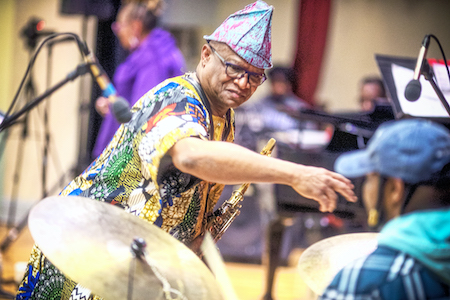
Ernest Dawkins received a commission from Jazz Road to orchestrate his reflections on his long-lost roots with America’s South.
(Photo: Michael Jackson)Ernest Khabeer Dawkins, who’ll be 69 in November, has an intrepid personality and an acute gaze. His middle name, bestowed by a Muslim preacher, means “big man.” He prefers to “cut to the chase” rather than mince words. This year’s Chicago Jazz Hero, he was nominated by the Jazz Journalists Association for his work uplifting his home community of Englewood, which has witnessed more than its fair share of neighborhood violence.
Dawkins has been busy, as usual, in recent months, presiding over a weekly jam session at Norman’s Bistro at 43rd and Ellis; convening drum circles in Englewood and Columbus Park; corralling his Live The Spirit Residency Big Band (LTSRBB) and Young Masters mentoring programs; organizing a concert in tribute to the late writer/activist Timuel Black; and preparing for the 23rd annual Englewood Jazz Festival, which he founded and extends to four days this year.
But it was back in April at Hamilton Park Cultural Center on Chicago’s South Side that DownBeat caught up with Dawkins, who received a commission from Jazz Road (an initiative of South Arts, funded by the Doris Duke Foundation with additional support from the Mellon Foundation) to orchestrate his reflections on his long-lost roots with America’s South. Dawkins’ ties with any of his Southern relatives were severed when 14-year-old Chicagoan Emmett Till was brutally murdered in Mississippi in 1955 (Dawkins was a toddler at the time). “Because of that incident, families in Chicago would not allow Black boys to travel south, so I would never know about my relatives there,” Dawkins said in conversation with trumpeter Al Strong before the concert, “There was a broken chain in the culture that this piece tonight reflects upon.” Dawkins previously dwelt on this travesty with Un-Till Emmett Till (DawkMusic) a live album recorded at the Sons D’Hiver Festival in Paris (2008) with LTSRBB. He dubbed the Jazz Road project “Refound Connections.”
Dawkins met Strong when the former was studying for a master’s at Northern Illinois University and was drafted into the LTSRBB. Subsequently Strong joined the faculty of North Carolina Central University and this past February invited Dawkins and Chicago cohorts Isaiah Spencer, Alexis Lombre, Junius Paul and Kevin King to workshop the piece and perform at singer Nneena Freelon’s converted church/arts center. The contingent representative of the commission in April included Strong, tenor saxophonist/oboe-ist King, feisty Durham-based drummer Dorian Dotson, pianist Theodis Rogers, bassist Ivan Taylor and vocal innovator Dee Alexander.
The extended piece commenced with high drama, rounds of stop time fours from each member of the ensemble, Strong alternately growling and pinching his trumpet sound; King and Dawkins screeching from the extremity of high and low saxophone registers; Rogers, unfastidiously dripping blues from the keys and Alexander heralding the beginnings of an extraordinarily committed foray. Moaning “My lawdie!” like a massive-hearted Southern mama, she emoted about the dilemma, “North or South, South and North, which is really home?” as the group seethed in support.
Kicked off by Strong, a bop/swing theme followed, surrendering to King’s impassioned oboe. Inevitable comparisons here with Yusef Lateef, a precursor in the jazz oboe department. Recall how magnanimous Cannonball Adderley used to be, giving ample space for Lateef’s oboe soloing, since the term ‘strangled cat’ comes to mind. Yet King was clearly undaunted by the double-reed demands, though it was something of a relief when he returned to his full throated tenor. Strong’s playing is hardscrabble in the manner of Freddie Hubbard, but Dawkins, often seen conducting the unwieldy Great Black Music Ensemble during his multiple tenures as AACM president (he completed a third term last year), exhorts energy from his participants and was constantly goading them to give more. All eventually diminuendo-ed, leaving Taylor to strut out. Another frantic head followed culminating in glorious dissonance, then Alexander and Taylor unison-ed an ostinato and the singer demonstrated why she is revered as a creative musician, combining feel and pitch control with rhythmic audacity and quasi-schizoid textures and effects.
Dawkins insists on feverish excitement in his music, takes no prisoners, zero cruising permitted. The audience was slim for this early Friday night continuous set but the group did not hold back (King is a talent to watch). During a pause the leader announced “In Too Deep” a composition inspired by an experience earlier in the year, when he was caught by a strong current swimming in South Africa and realized he wasn’t as invincible as he thought.
He called out to CJ, a high school friend in the audience, remembering their narrow escape, being shot at pointblank in Chicago, and had wondered, when floundering at sea, whether drowning was how he was going to die. DownBeat later quizzed Dawkins about that shooting incident that occurred when he was about 15. He and CJ had rescued a young lad from being stabbed with a bayonet and then the ‘demon seed’ 12-year-old they’d shaken off murder returned with a rifle and started firing. Fortunately at close range the gun jammed, then they were running, shells whistling past ears.
Though Dawkins attended St. Emma all-Black military academy in Virginia when he was 17, music is his mission and when his long-running New Horizons Ensemble plays “Baghdad Blues,” it concludes with a collective chant of “No more war!”
The Newfound Connections music has a fervor and urgency to it indicative of Dawkins’ impatience with the status quo and wish to leave a positive legacy in the ’hood. During a long alto solo negotiating a challenging 10 measure form he confessed, “I always save the most difficult parts for myself.”
Dawkins’ ambitions brook few bounds, and with help from diverse grants too numerous to mention, he’s lifting the Englewood Jazz Festival (Sept. 14–17) to new heights at Hamilton Park and Cultural Center this year, with headliner Kenny Garrett. Newfound Connections will play, too. DB
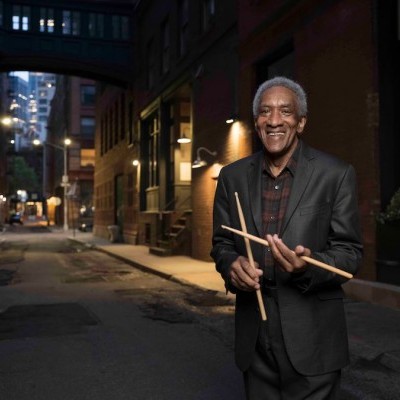
Foster was truly a drummer to the stars, including Miles Davis, Sonny Rollins and Joe Henderson.
Jun 3, 2025 11:25 AM
Al Foster, a drummer regarded for his fluency across the bebop, post-bop and funk/fusion lineages of jazz, died May 28…
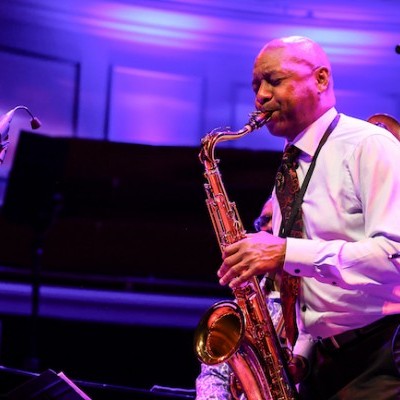
“Branford’s playing has steadily improved,” says younger brother Wynton Marsalis. “He’s just gotten more and more serious.”
May 20, 2025 11:58 AM
Branford Marsalis was on the road again. Coffee cup in hand, the saxophonist — sporting a gray hoodie and a look of…
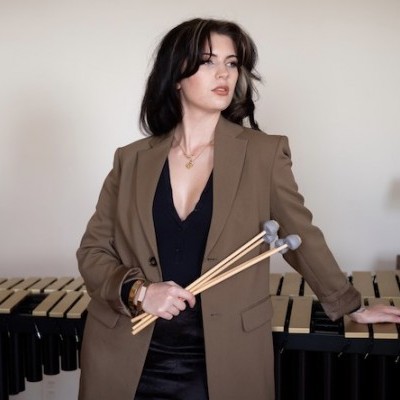
“What did I want more of when I was this age?” Sasha Berliner asks when she’s in her teaching mode.
May 13, 2025 12:39 PM
Part of the jazz vibraphone conversation since her late teens, Sasha Berliner has long come across as a fully formed…

Roscoe Mitchell will receive a Lifetime Achievement award at this year’s Vision Festival.
May 27, 2025 6:21 PM
Arts for Art has announced the full lineup for the 2025 Vision Festival, which will run June 2–7 at Roulette…
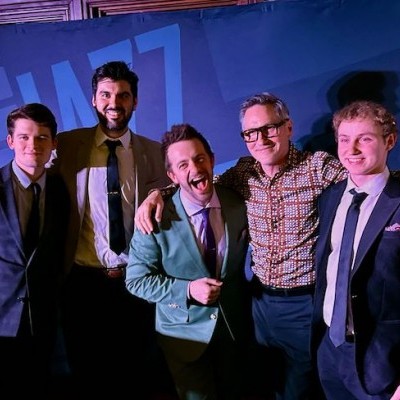
Benny Benack III and his quartet took the Midwest Jazz Collective’s route for a test run this spring.
Jun 3, 2025 10:31 AM
The time and labor required to tour is, for many musicians, daunting at best and prohibitive at worst. It’s hardly…